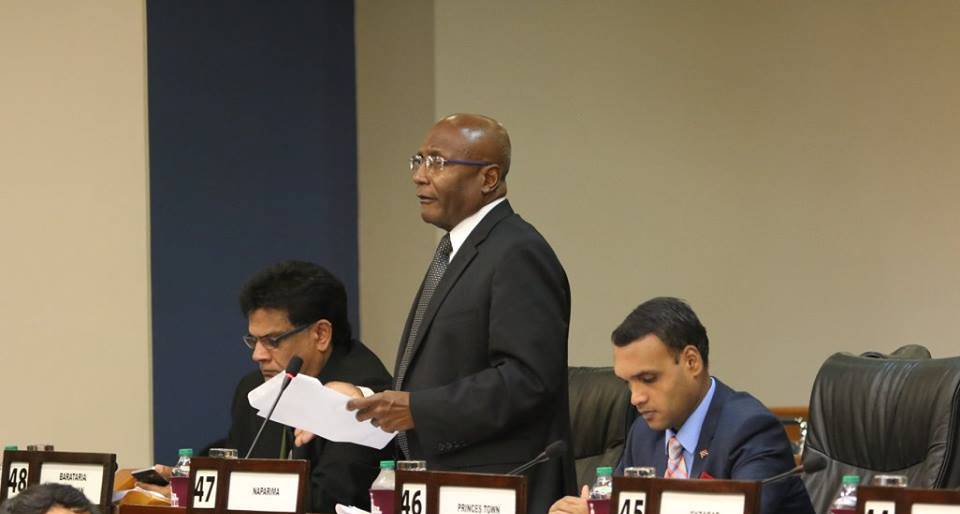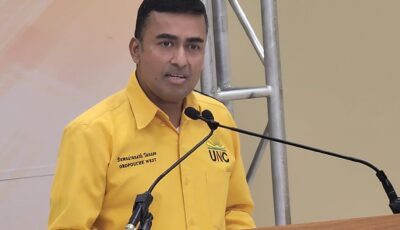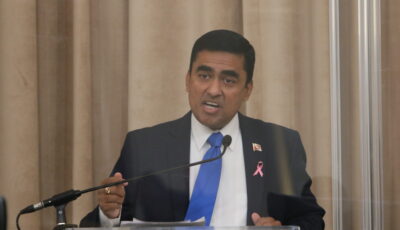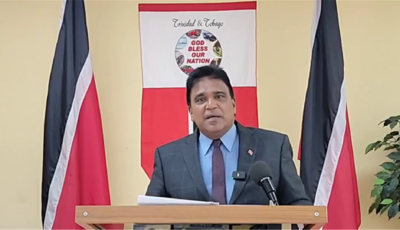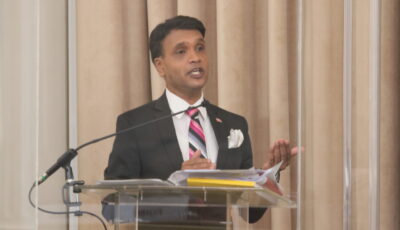Charles to Rowley: Where is your concern for the well-being of workers?
Eric Williams, faced with the worst crisis in the energy sector in the 1970s, made the interest and welfare of workers his preeminent concern. Rowley, half a century later, by contrast with no known exit strategy for Petrotrin workers is clearly showing that balance sheet, transactional considerations are his overriding concern.
Treatment of the Petrotrin challenge must be balanced by consideration for workers’ interests.
As it stands, the welfare of displaced workers is merely a footnote, an afterthought and apparently a nuisance to be dealt with later.
Dr Eric Williams demonstrated a considerably more people centered, strategic approach to the country’s arguably worst crisis in the energy sector in the 1970s. The country had just come out of a major recession with no FX or HSF cushion. Shell, Texaco and BP were abandoning their energy interests in TT. The state had no experience in running refineries. The Black Power riots were a recent reality and that period witnessed the first major migration of our intellectual capital including technicians from the oil companies.
Putting people first Williams, based on his seminal prescription: “Perspectives For a New Society”, created Trintoc out of the ruins of Shell; Tesoro out of BP and later (in 1978); Petrotrin out of Texaco.
I worked at Trintoc in 1981 and for 18 years in NP. In NP we had to reconcile workers benefits for former Shell, Texaco, ESSO, and BP workers who were absorbed since no worker lost his job. That was Williams’ instruction.
While I personally benefitted from Eric’s enlightened strategic approach, this generation of workers suffers immeasurably from the cluelessness, incompetence and bankruptcy of ideas of this bumbling Rowley administration.
Urgent answers are needed from this clueless government on:
1. Where is the strategic plan, like William’s “Perspectives for a New Society” which makes sense of current tactics taken in the energy sector? What are the next steps?
2. While action has to be taken on Petrotrin, why are we not privy to all the data so that we can be assured that the option adopted is indeed the best? What are the costs of closing down the refinery including terminal benefits and maintenance of aging, and therefore potentially polluting, infrastructure?
3. Why have the interest of workers not been prioritized and why does it appear that not enough consideration has been given to their terminal benefits, or the human costs, or the resulting social chaos in Southern communities? Where are the safety nets?
4. How will the retained Exploration and Production Units operate and who will own them? On what basis will new/returning employees be hired?
5. Why were workers and their union not included in plans to close the refinery? Were workers offered options like reduced salaries and ESOPs? When Shell considered closing down in the late 1960s they outsourced company work to displaced workers.
6. Have we, without a High Commission in Georgetown, held serious discussions with Guyana to examine possible supply sources for oil and if so what is the status of these negotiations?
7. Will the closing the refinery affect bullet payments of US $850 and US $750 owed because of the unconscionable incompetence of the late Malcolm Jones and his PNM colleagues some of whom are still making decisions on the future of Petrotrin?
8. Were serious attempts made to reduce operational costs at Petrotrin and if so how does the fake oil scandal factor into these cost saving measures?
Williams laid the foundation for the creation of a National Energy Sector as early as 1955. He advised, “There will come occasions when the state may have to take the initiative as an investor, without prejudice to the policy of encouraging and supporting private enterprise, in order to protect and promote the national interest.”
Dr. Rowley by contrast shows a callous disregard for intellectual considerations as a backdrop to decision making. His decisions are shrouded in secrecy, based on first principles and demonstrative of an inability to think outside the box. He thinks transactionally and tactically — not strategically and comprehensively.
The result of all this is that we are doomed to a dystopia where 3,500 families will have to face the breadline and an uncertain future. Many voted for Dr Rowley, fooled by his rhetoric. We now know that they were taken for a ride.
Oh how we miss the likes of Eric Williams, Kamla Persad Bissessar, Noel Wyatt, Walton “F” James, Richard Toby, Hugh Howard and many others who overcame national crises of yesteryear and who had a sense of vision and destiny.
While dealing frontally with Petrotrin, they would have done so in a more humane, people centered, understandable, and well thought out manner.
Rodney Charles
MP for Naparima

